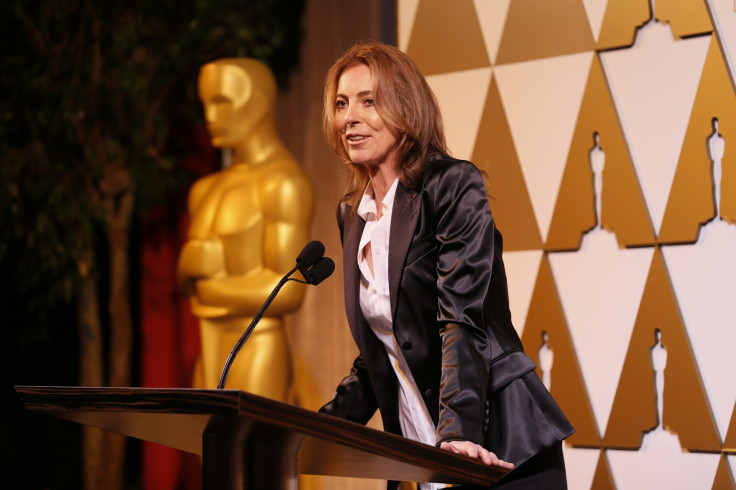'Female' Or 'Woman'? Which Adjective To Use?

We might actually see more film and television directors who are women in the future, thanks to the ACLU and 50 fed-up, whistleblowing women in Hollywood. But when we do, what will we call them? "Female directors," as the New York Times refers to them, or "women directors" as ACLU senior staff attorney Ariela Migdal did in a recent interview?
The dearth of women in many fields gives rise to the awkward need to qualify them in certain contexts. But how to do it without using using sexist language?
The Case For 'Woman' As An Adjective
Dr. Robin Lakoff, professor emerita of linguistics at UC Berkeley, falls on the side of "women directors." Her 1975 book "Language and Woman's Place" is widely recognized as a pioneering work that investigates the politics of language and gender.
Referring to gender references in occupational contexts, Lakoff says that historically, there have been three choices, each problematic in its own way.
There's the 'ol' suffix "-ess," as seen in the words "authoress," "poetess," "doctoress," "professoress," which were "prevalent in the 19th - early 20th centuries," Lakoff told International Business Times. "This is clearly demeaning: The suffix seems to convey diminution as well as feminization, and suggests 'a minor type of X.'" This is why many women in Hollywood, for example, refer to themselves as "actors" rather than "actresses."
"Then we had 'lady, as in 'first lady,' or 'lady doctor,'" says Lakoff. "The latter suggests a kind of dilettantism," that is, not a serious doctor, or "not a real X." We're used to hearing "first lady," Lakoff says, but what are we going to do in the event we elect our first president who is a woman? Are we going to call her husband its "obvious exact lexical equivalent" i.e. "first gentleman"? Lakoff says, "It sounds prissy and condescending, as does 'first lady,' but we permit it because we are used to condescending to women."
There seems to be a general consensus that referring to women as "females" is derogatory.
"As a noun, 'female' has no place in ordinary conversation unless one is speaking of an animal species," writes Maeve Maddox in Daily Writing Tips.
Lakoff's explanation for why she prefers "woman" as an adjective for occupations is related. "It suggests to me a sort of animal connection: female cow, female sheep, and so on," said Lakoff. "Because 'female' refers to both animals and people, but perhaps also because there are so many derogatory terms for human women based on female animal names: 'bitch,' 'vixen,' 'cow.' "
So by default, "woman" as an adjective seems the best bet, according to Lakoff. "It seems to have none of the above problems, but is still worth avoiding, I think, unless there is a good reason to specify gender." She provides examples of instances where referring to gender along with occupation is relevant ("As a woman doctor, Dr. X is especially sensitive to problems involving menstruation") and when irrelevant ("I saw a woman doctor for my allergies").
The Case For 'Female' As An Adjective
"Female directors" is the way to go, according to Mignon Fogarty, grammar blogger and best-selling author of the "Grammar Girl's Quick and Dirty Tips for Better Writing."
"I tell people that if they would use 'male,' they should use 'female,'" Fogarty told IBTimes.
"For example, nobody would talk about 'man directors,' so 'woman directors' doesn't seem like the right choice. You would call a man a 'male director,' so the parallel choice is to call a woman a 'female director.' 'Male' and 'female' are the traditional adjectives of gender."
Fogarty acknowledged that some people object that "female" sounds too biological, as if we're treating women as animals, but she made an interesting case for equality in gender adjective use: "I don't see any reason to treat women differently from men when it comes to the adjectives 'male' and 'female,'" she said.
Taking Sexism Out Of Language
“This distinction between woman and female is not widely respected in formal edited writing, though some groups are starting to use these formerly interchangeable terms in new ways," Rebekah Otto, content director for Dictionary.com, told IBTimes.
She cited some linguistic debates around gender, including the "chair" versus "chairwoman" or "chairperson" debate, and the fact that "womanist" was created after "feminist."
"It didn't stick," she said.
© Copyright IBTimes 2025. All rights reserved.






















